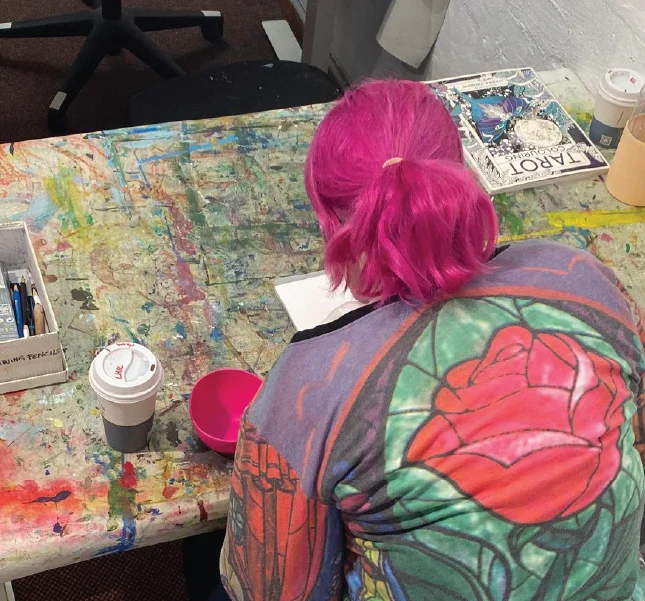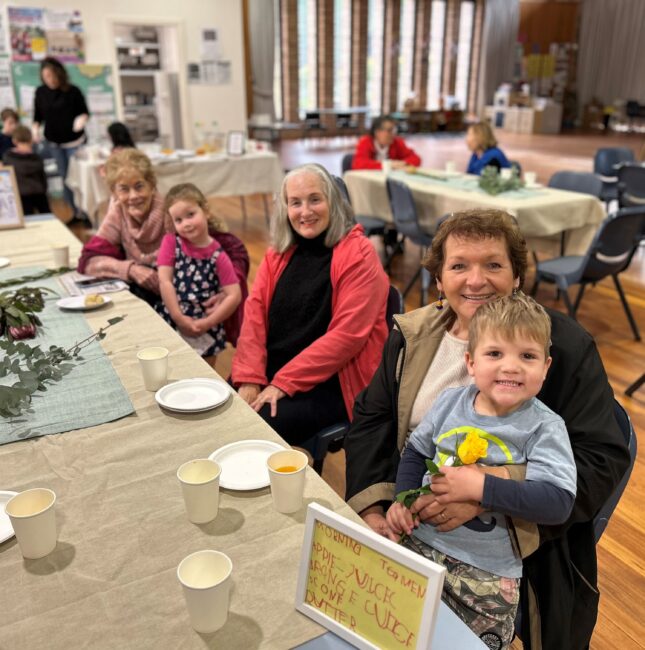Healthier, happier & together under one roof
June 19, 2024
When David moved to the Central Coast, he found himself isolated from his supports and with the mighty task of caring for his six children. Despite having all the right intentions, he found it overwhelming and almost impossible to meet the needs of his children, particularly those with significant physical and intellectual disabilities.
David was referred to CatholicCare’s Multisystemic Therapy for Child Abuse and Neglect (MST-CAN) program. The purpose of the program is to keep families together by providing practical skills and therapeutic support. This program, as it turns out, is exactly what David needed to get his family’s life back on track.
Before his referral to MST-CAN, David struggled to get his children to medical appointments, of which there were many. The hygiene of the family home had been reported as an issue, and it had come to the attention of the Department of Communities & Justice (DCJ) that his children had been missing many days of school.
When CatholicCare became involved, we set some goals in partnership with David and DCJ to increase school attendance, upskill David to be able to get all his children to medical and allied health appointments, learn new parenting skills to encourage positive behaviour and to improve the hygiene of the home.
For nine months, David was visited by an MST-CAN therapist three times a week. “We provided very active and intensive support for the family, particularly around school attendance,” says MST-CAN Therapist, Yasmin.
“The therapist would come over in the mornings and support the children through a ‘graded exposure’ treatment, helping them adjust to school by adding a small task each morning. David was supported to take responsibility for the morning routine and to implement rewards and consequences for school attendance.”
“If needed, the therapist would come over and coach David to help with getting plans in place,” says Yasmin. “We used this method to support getting an organisational system in place for medical appointments and learning new parenting skills.”
An MST-CAN Case Worker worked collaboratively with the family and the therapist to meet the family’s goals. “This included getting the house organised and supporting the family’s move into a wheelchair accessible home closer to supports,” says Yasmin. Today, David has an NDIS service in place, where support workers come each day to support the family.
Yasmin says that David has learned many new skills. “He has become a firmer parent with better boundaries,” says Yasmin. “He can now say ‘no’ and follow through with it. His kids listen more and behave more positively as a result.”
The MST-CAN program engages a multi-disciplinary team to support families, and David’s story is a beautiful example of how practitioners can work collaboratively to keep a family together.
Today, David feels more confident in his ability to meet the needs of his children, and he has a greater sense of control over his daily life. He and his kids will often be found at the beach having a surf and enjoying quality time together. “David cooks a hearty meal for the family every night, and the kids help out,” says Yasmin. Life is far from perfect, but they are healthier, happier, and most importantly, together under one roof.
For more information:
P: 1800 324 924
E: info@catholiccaredbb.org.au
More news stories like this one
My mental health can’t hold me back
“My mental health can’t hold me back from my art,” says Hannah who attends Boonah Creative Arts Centre.
Read MoreOur annual report is a series of inspiring stories
Our incredible teams continued supporting, educating, encouraging, equipping and advocating for our clients this year. The many testimonies and case studies in this annual report serve to highlight how incredibly well they did this work.
Read MoreGenerations connect over juice and scones
After watching the show ‘Old People’s Home for 4 Year Olds' we looked at how we could do something similar in our community. We knew that many of our families had grandparents who lived a long way away and they would benefit by having that intergenerational connection.
Read More


